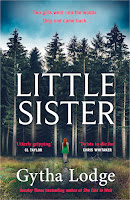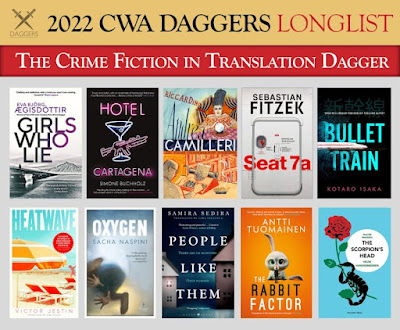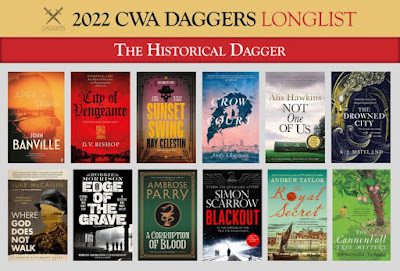One hundred miles east of Reno, Nevada, there is a town. You can’t see it from Interstate 80, but I stumbled upon it one day when the pumps at the Exit 105 Chevron were broken. Lovelock, it’s called. “Lock Your Love in Lovelock,” says the billboard on the interstate. As I drove its short main street I slowed the car. I tried to imagine why 1,847 people might choose to live there, in the middle of the desert, so far from anyone else.
This wasn’t unusual for me; I’ve always been fascinated by small towns. I grew up in a subdivision, but my parents grew up in picture-perfect Midwestern villages, with elm-shaded streets and white-painted bandstands. Each summer we visited my father’s hometown, and I walked to the soda counter and swam in the community pool. It was a theme park version of the perfect childhood, and when we left I’d feel cheated. My parents had had that life. Why couldn’t I?
Then, when I was in high school, my mother said she wanted us to move back to Iowa, and suddenly I could imagine nothing worse than living in those cornfields, far from the malls and multiplexes of my teenaged suburban world. You’ll be Homecoming Queen, my mother promised, as though there were nothing better than being Homecoming Queen in a small Iowa town, and I realized the nostalgia I’d always heard in her voice was really regret. She’d never wanted to leave. But my father had always wanted to live in the wider world, so we didn’t go back. And ever since, I have driven slowly through small towns. I think about my mother, who wanted to stay, and my father, who wanted to leave. I think of my own internal conflict: my heart is drawn to the slow beats of these lovely pastoral villages even as my mind revels in the kinetic energy of the large city where I’ve chosen to live instead.
Lovelock, though, is not a lovely pastoral village. It’s an unsightly scab on a bleak landscape. Its drab commercial buildings house pawn shops and slot casinos. Its houses are small and nondescript, with sandy lots and concrete sidewalks cooking in the sun. Yet its existence out there in the desert struck me as kind of wonderful, as if I’d found a secret pocket in the lining of a raggedy coat. I’d assumed the appeal of small towns lay in their quiet beauty: in grassy town squares, white-steepled churches, and graceful homes with wraparound porches. But it couldn’t be beauty that kept people in Lovelock. I knew that someday, I would set a story there.
The Distant Dead is that story. It’s about a man who moves to Lovelock seeking sanctuary only to meet death at the hands of the demons he tried to outrun. It’s about a woman who feels trapped in the town where she was born, and a young boy, burdened with a terrible secret, who wants a place to belong. All three wrestle with the idea of home: what it means, how much it matters, and whether it’s possible to leave it and start fresh. Through their interwoven stories, I examine the mystery at the heart of the question I’ve asked myself my whole life: how the same small town can offer succor to one person and feel like a cage to another.
The answer, it turns out, lies in the human connections that are only possible in small towns. The bartender at the Whiskey Barrel on Main Street explained it when she told me how she’d married her high school boyfriend, followed him while he served in the Army, then moved back with him when his tour was over. There are prettier places, she allowed. But they wanted to raise their children alongside people they’d known since they were born. The owner of the town’s only coffee shop echoed her. She knew the town was struggling, but her family had been there since the beginning. Leaving would feel like a betrayal. Anyone else in Lovelock would tell you the same thing: they don’t stay because they like the weather. They stay because their people are there. Their history is there. Their dead are there.
That’s also, of course, why they leave. Because for some, the fact that their name makes everyone in their town nod in recognition is a claustrophobic horror, and the generations that came before are not a legacy to be honored but a haunting to be outrun.
But whether they stay or go, they will always feel the weight of home in a way I never will. My investigation of this one small town taught me that this—the birthright my parents denied me when they left Iowa--is why I’m fascinated by all such places. I will never be known the way my parents were. Nor will I ever know anyone else as deeply or effortlessly as the people in Lovelock know one another. I desperately wish I had had that opportunity. I’m profoundly grateful I did not. And so I will always drive slowly through small towns, feeling envy and relief in equal measure.
The Distant Dead by Heather Young (Verve Books) Out Now
A body burns in the desert... Does the boy who found it know more than it seems Sal Prentiss, orphaned and burdened with a terrible secret, just wants a place to belong. Sal lives with his uncles on a desolate ranch in the hills, and finds himself at the centre of a brutal murder mystery when he discovers the body of his maths teacher, charred almost beyond recognition, half a mile from his uncles' compound. In the seven months he worked at Lovelock's middle school, the quiet and seemingly unremarkable Adam Merkel had formed a bond with Sal and was one of the few people to look out for the boy. Nora Wheaton, the school's social studies teacher, sensed a kindred spirit in Adam - another soul bound to Lovelock by guilt and duty. After his death, she delves into his past for clues to who killed him. For Sal's grief seems shaded with fear, and Nora suspects he knows more than he's telling about his teacher's death.






.TIF)
.TIF)

















